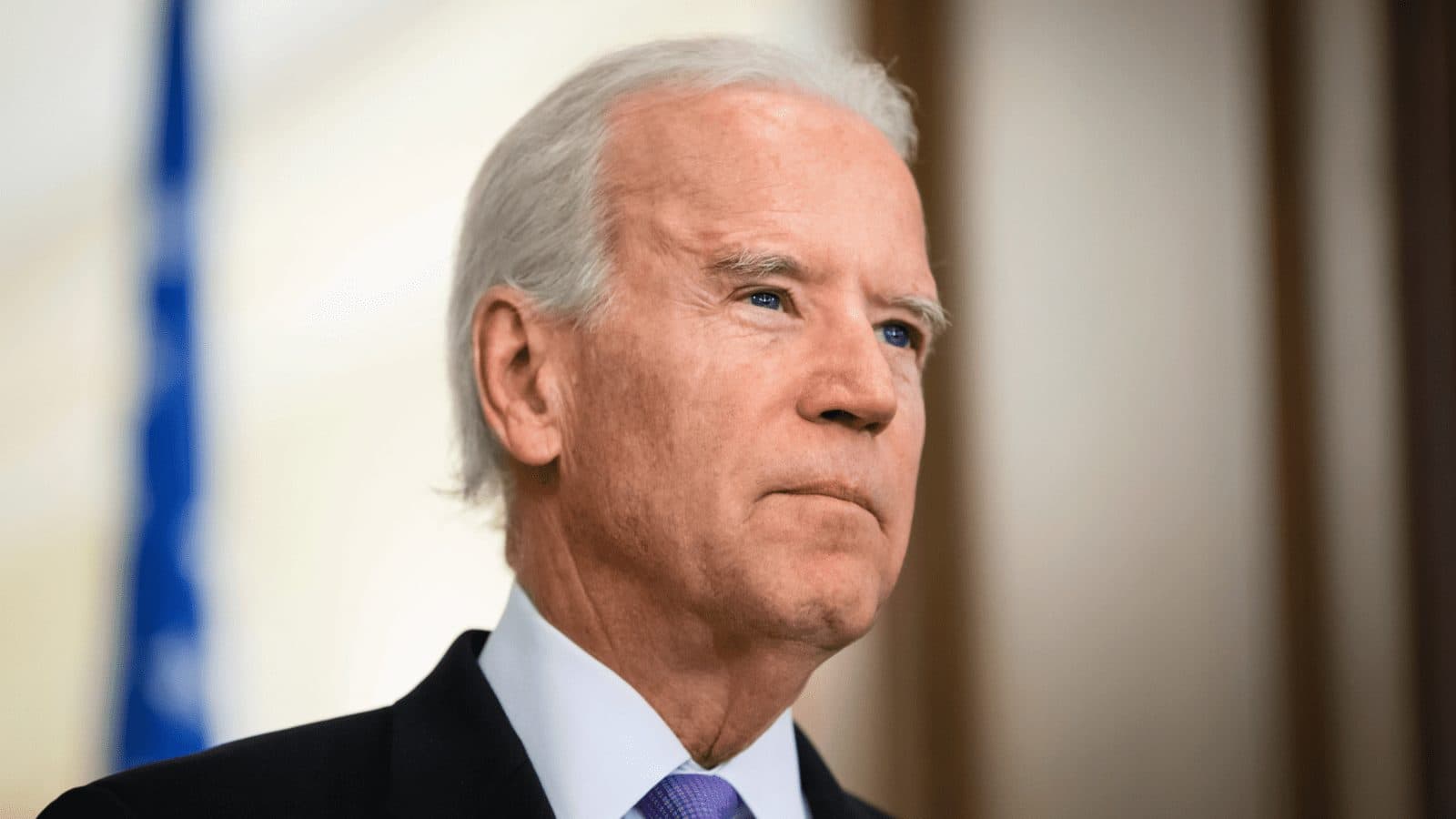The Crypto Conundrum: How Fintechs Can Close the Trust Gap With More Regulation Brewing
Traditional finance, which has a long history of adapting to regulatory changes, is seemingly gaining momentum as a trusted provider of specialized crypto products and services

President Joe Biden | Source: Shutterstock
- A recent Edelman survey of more than 1,000 retail investors found that 44% of respondents would prefer to buy cryptocurrency from their bank as opposed to another fintech provider
- Security, customer education and regulatory conversation should be top priority for fintechs
As the cryptocurrency market navigates questions regarding its role in the geopolitical and humanitarian crises unfolding in Ukraine, another challenge has emerged for the industry in the US on the regulatory front.
The Biden administration’s executive order released last week, which directs the Treasury Department and other agencies to develop crypto policy recommendations, has introduced some degree of clarity and priorities as a regulatory framework is now being developed. At the same time, however, there is also fresh uncertainty as investors now must await new guidance that will likely impact the very firms they utilize for buying and selling bitcoin and other cryptocurrencies.
The threat of more stringent regulation has been bubbling for months and has already been worrying investors who are now being courted by not only crypto startups, but by Wall Street’s biggest banks and brokerages, which have rolled out solutions aimed at helping them manage their digital currency.
Indeed, with the prospect of more regulation on the horizon, a recent Edelman survey of more than 1,000 retail investors found that close to half (44%) of respondents would prefer to buy cryptocurrency from their bank as opposed to another fintech provider, such as an exchange. Moreover, nearly half (49%) of the retail investors surveyed believe that the crypto market needs additional regulation, with Gen Z (71%) and Baby Boomers (86%) having the strongest opinions on the matter.
Within this backdrop, traditional finance, which has a long history of adapting to regulatory changes, is seemingly gaining momentum as a trusted provider of specialized crypto products and services. But there are several ways the crypto industry can close the gap and bounce back from this latest challenge.
- Make governance and security even more of a top priority. While the recovery of stolen bitcoin is reassuring to concerned investors, these instances underscore the need for firms to have strong contingency plans in place. Establish a dialogue early and often with customers about the specific security and compliance protocols that have been implemented.
- Don’t take education for granted. The retail boom has meant an influx of emerging market participants, many of whom are not well versed in crypto market structure. Meanwhile, some sophisticated investors have only just begun to add bitcoin to their portfolios. Offering webinars, market data and informed commentary, particularly in periods of market turmoil, is the surest way to remain in these customers’ good graces.
- Ensure that you have the right team in place. While crypto firms are often led by tech savvy entrepreneurs with disruptive ideas, assembling a dedicated team with specialized expertise is essential. Blend innovators with those that have the appropriate credentials. If you’re marketing to institutional investors, for instance, hiring Wall Street professionals is the best way to ensure that you understand your audience, are developing products (and those who know how to secure necessary approvals) that will meet their needs and have the skillset necessary for your offerings to achieve critical mass.
- Be a part of the regulatory conversation. For crypto firms, it’s critical to develop relationships with Beltway Influencers and engage directly with government officials before speaking publicly and to the press on key issues. Advocate publicly to enhance — not initiate — your business agenda. Be sure your customers know where you stand on regulation — engage them on the channels they care about the most. Doing so thoughtfully and proactively just might keep these important stakeholders from jumping ship.
With new regulation on the horizon and legacy financial institutions digging deeper into crypto, the industry must act now to proactively maintain its standing at the forefront of innovation and build trust with customers. If digital assets are to continue gaining broader acceptance, taking these measures must become a business priority.
Get the news in your inbox. Explore Blockworks newsletters:
- The Breakdown: Decoding crypto and the markets. Daily.
- 0xResearch: Alpha in your inbox. Think like an analyst.






